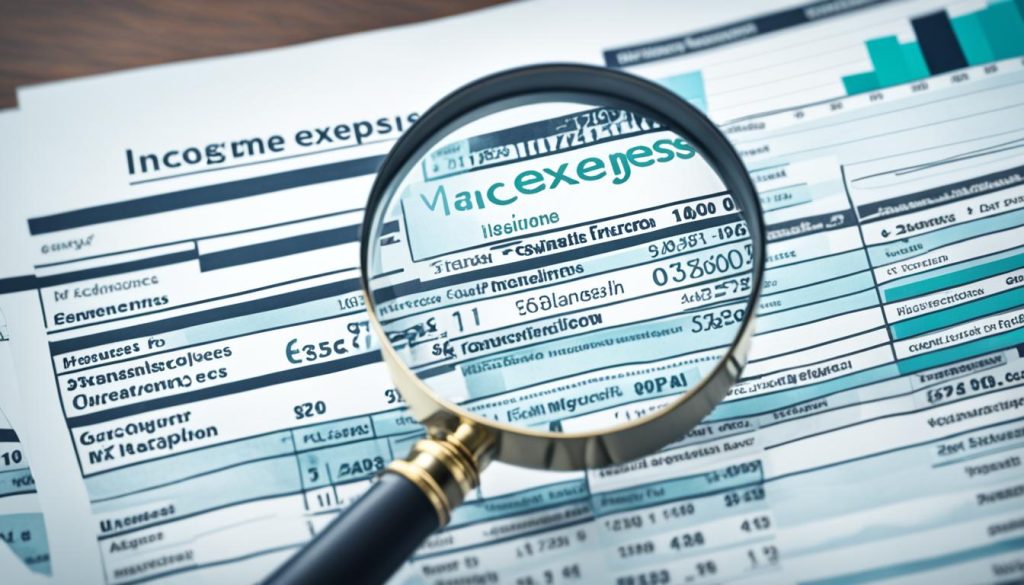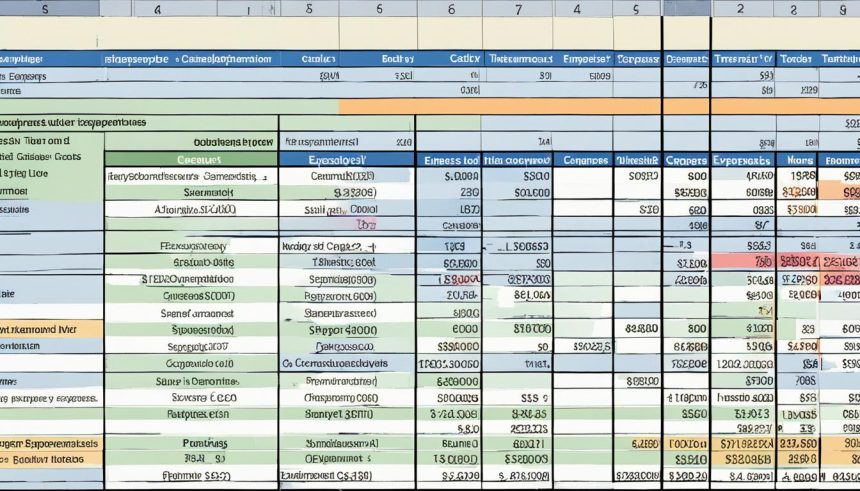Making a budget is key to financial stability and reaching your goals. It helps you manage your money better. Whether you want to pay off debt, save more, or control your spending, a good budget is essential. This guide will show you how to make a budget that fits your financial needs and goals.
Key Takeaways
- Understand the importance of budgeting for financial stability and healthy spending habits
- Learn how to track your income and expenses to create a realistic spending plan
- Discover techniques for categorizing your expenses to identify areas for cost-saving
- Set achievable financial goals and monitor your progress to stay on track
- Develop strategies to reduce debt and increase savings through effective budgeting
Understanding the Importance of Budgeting
Making a personal budget is key to good financial planning. It helps you manage your money better, leading to financial stability and healthy spending habits. By knowing how important budgeting is, you can start on a path to a more secure and prosperous future.
Achieving Financial Stability
A good budget acts as a guide for your finances. It lets you keep track of your income, sort your expenses, and find ways to spend less. This way, you can use your money better, reach your financial goals, pay off debt, and grow savings. Budgeting teaches you to be disciplined with your money, helping you avoid buying things on impulse that could mess up your personal finance plans.
Developing Healthy Spending Habits
Budgeting helps you form healthy spending habits. By watching your spending habits and sorting your expenses, you can find ways to spend less or better. This makes you more careful with your money management, leading to a steady and balanced financial life. Budgeting also makes you think about what’s really important in your life, so you can spend on what matters most.

How Do You Prepare a Budget for Spending?
Creating a budget is key to financial stability and good spending habits. Start by tracking your income, categorizing your expenses, and setting financial goals. This helps you manage your money better and make smart choices about spending.
First, track your income. Include your main income sources like a job or freelance work. Add any extra money from investments or side jobs. Knowing your income helps you see what you can spend.
Then, sort your expenses into categories like housing, transport, food, and fun. This helps you see where your money goes. You can then find ways to spend less or better. Many apps and tools can help track your spending and spot trends.
With your income and expenses clear, set financial goals. Goals might be saving for a house, paying off debt, or building an emergency fund. Make sure your spending matches your priorities to keep your budget working for you.
Remember, stay flexible with your budget. Your finances can change, and your budget should too. Regularly check and adjust your budget to keep on track with your financial goals.
By following these steps, you can make a budget that helps you manage your money well. It’s important to be methodical and disciplined, whether you’re starting or improving your budget.
Tracking Your Income and Expenses
Effective budgeting starts with knowing where your money comes from and goes to. By tracking your income and expenses, you can manage your money better. This helps you make smart choices about how you spend.
This section will show you how to track your income and expenses. It’s the first step towards a successful budget.
Categorizing Your Expenses
It’s important to sort your spending into categories. Think about things like housing, transportation, groceries, and fun money. This helps you see where your cash goes.
Being detailed in your categorizing gives you a clear picture of your finances. It shows where you can save money and helps you spend wisely.
By tracking your money and sorting your spending, you’ll understand your finances better. This knowledge lets you make smart choices. It helps you develop good spending habits and take control of your money.


















